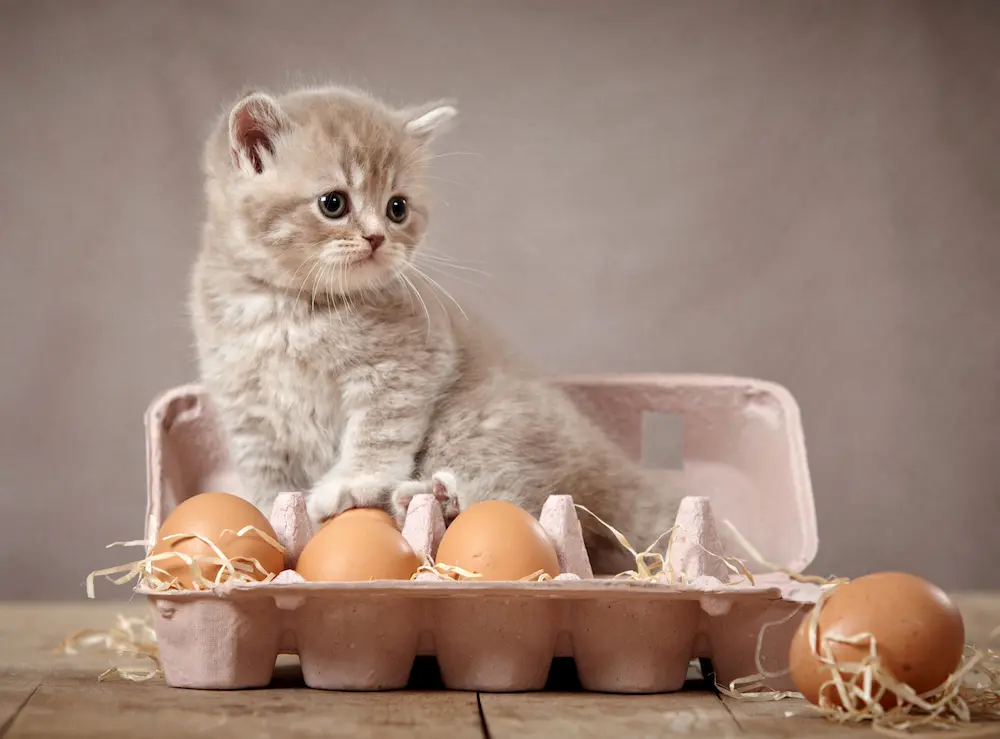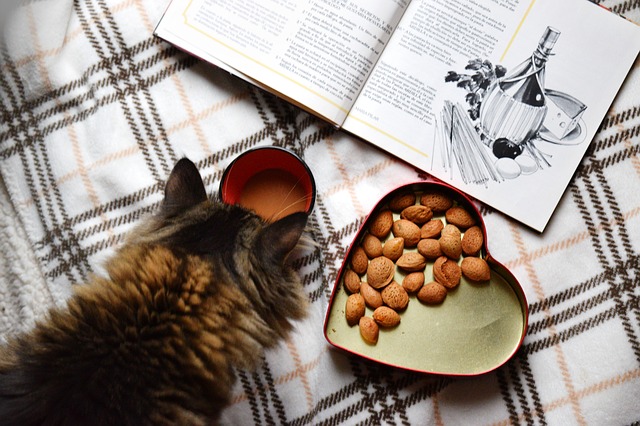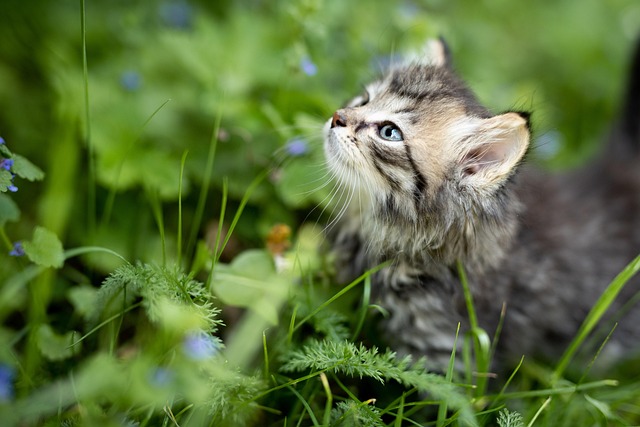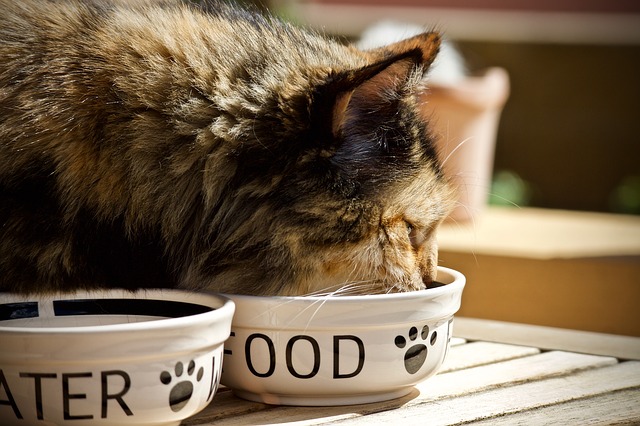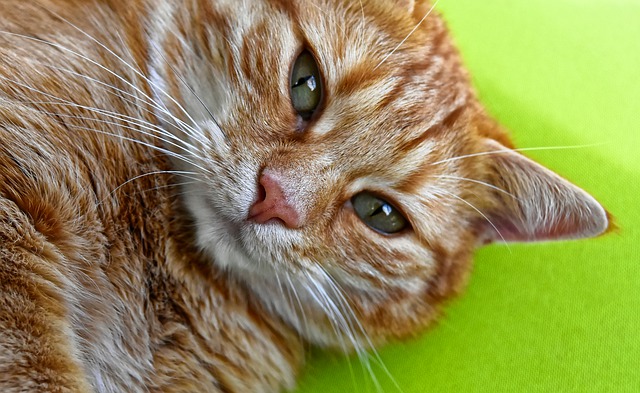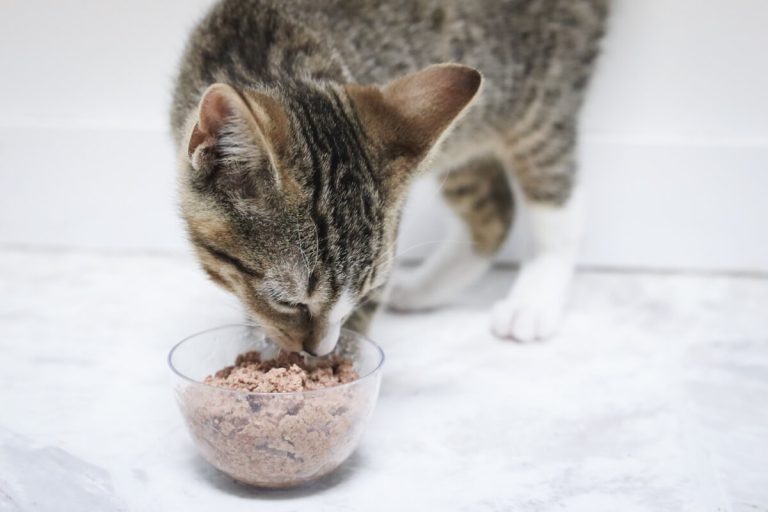Should You Feed Your Cat Eggs? Here’s What Experts Say
So, I was watching ‘The Lion King’ the other day and got to thinking about what our domestic
Eggs popped into my mind, and it turns out they’re quite the nutritious treat for cats.
Packed with high-quality protein and vitamins like B12, they can really boost energy and muscle health.
But here’s the catch—serving them raw can be risky due to bacteria and potential biotin deficiency.
Moderation and proper cooking are key.
Curious about how to safely add eggs to your
Nutritional Value of Eggs
Eggs pack a punch when it comes to nutrition, offering a rich source of protein, vitamins, and minerals that can benefit both humans and our beloved
Let’s break it down.
Eggs are like the Avengers of the food world, uniting various nutrients to create a powerhouse of health benefits.
They’re loaded with high-quality proteins, which are essential for muscle repair and growth.
Each egg contains about six grams of protein, making them a fantastic option for those who want to build strength or recover after a workout.
Not just that, eggs are also rich in vitamins such as B12, D, and A.
Vitamin B12 is important for nerve health, while vitamin D supports bone health, and vitamin A is essential for vision and immune function.
Plus, eggs come packed with minerals like iron, which helps in transporting oxygen through the blood, and selenium, an antioxidant that fights off cell damage.
In a world where we’re constantly on the lookout for nutritious, efficient food options, eggs are as iconic as a classic movie—think ‘The Breakfast Club’ but for your diet.
So, whether it’s for you or your loyal companion, eggs are a nutritional goldmine.
Benefits for Cats
For our
Think of eggs as a
They’re packed with high-quality protein, which is essential for muscle repair and growth.
Just like how Captain America needs his strength, our cats need those muscles for their everyday adventures, whether it’s climbing trees or chasing laser pointers.
Eggs are also a great source of vitamins like B12 and riboflavin, which play important roles in maintaining energy levels and supporting the nervous system.
It’s akin to giving your
Additionally, the choline found in eggs can promote brain health, ensuring your
Let’s not forget the healthy fats in eggs, which contribute to a shiny, lustrous coat.
It’s like giving your kitty the
In short, eggs are a nutritional powerhouse that can keep our beloved
Potential Risks
While eggs can be a nutritional boon for our
First off, let’s talk about biotin deficiency.
Raw egg whites contain avidin, a protein that can bind to biotin (a B-vitamin) and prevent its absorption.
Over time, this can lead to a deficiency, which isn’t exactly the
Salmonella is another concern.
Just like in humans, raw or undercooked eggs can harbor this nasty bacteria, leading to serious digestive issues for your four-legged friend.
Think of it like the
Food allergies are also something to keep on your radar.
Eggs might cause allergic reactions in some cats, leading to symptoms like itching, ear infections, or gastrointestinal upset.
Lastly, moderation is key.
Too many eggs can lead to obesity or other health issues due to the high fat content. Remember Garfield’s love for lasagna?
Well, we don’t want our cats to end up with Garfield-sized waistlines.
How to Serve Eggs
When serving eggs to your
Scrambled or hard-boiled are good options, and avoid adding salt, butter, or any other seasonings.
Think of it as making a clean and simple dish for your special companion, much like a celebrity chef preparing a special meal for a VIP guest.
Here’s a quick table to guide you on how to serve eggs to your
| Cooking Method | Description |
|---|---|
| Scrambled | Cooked without oil or butter, and no seasoning. |
| Boiled | Hard-boiled, peeled, and chopped into small pieces. |
| Poached | Cooked in water, no seasoning, and chopped. |
| Baked | Cooked in the oven without any added ingredients. |
It’s like preparing a gourmet meal for your
Just remember, plain and simple is the key.
Cats don’t need the extra flavors that we might enjoy.
Plus, keeping it simple helps you avoid any ingredients that could be harmful.
Frequency and Portions
Balancing how often and how much egg you give your
Think of it like feeding your
Cats are obligate carnivores, and while eggs are a great source of protein, overloading on them can throw their diet out of whack. I usually give my
It’s kind of like how you wouldn’t binge-watch an entire season of ‘Stranger Things’ every night—moderation is key!
Cats have different nutritional needs than humans, and too much egg can lead to an imbalance of essential nutrients.
For example, eggs are high in fat, and too much fat can lead to obesity or pancreatitis in cats.
Veterinarians often recommend that treats should only make up about 10% of a
So, if your
Let’s be real: we all want our cherished pet to live long, healthy lives.
By keeping portions small and infrequent, you’re ensuring your beloved companion stays in tip-top shape.
Alternative Protein Sources
Speaking of keeping your
Think about chicken, for instance. It’s a classic choice, and most kitties go gaga over it.
Just make sure it’s cooked and unseasoned.
Tuna is another kitty favorite, but be cautious—too much can lead to mercury poisoning.
A little goes a long way, kind of like that sprinkle of cinnamon in your pumpkin spice latte.
Have you ever tried feeding your kitty turkey? It’s not just for Thanksgiving!
Turkey provides lean protein and is often easier on a kitty’s digestive system compared to beef.
Speaking of beef, it’s another solid option, but it should be cooked thoroughly.
Raw diets are trendy, but they carry risks like bacterial infections.
For a more exotic twist, you could introduce your kitty to fish like salmon or sardines.
These fish are rich in omega-3 fatty acids, which support your kitty’s coat health. Just imagine your kitty strutting around with a shiny, Instagram-worthy fur coat!
Conclusion
So, there you have it! Eggs can be a fantastic, protein-packed treat for your
Think of eggs as your
